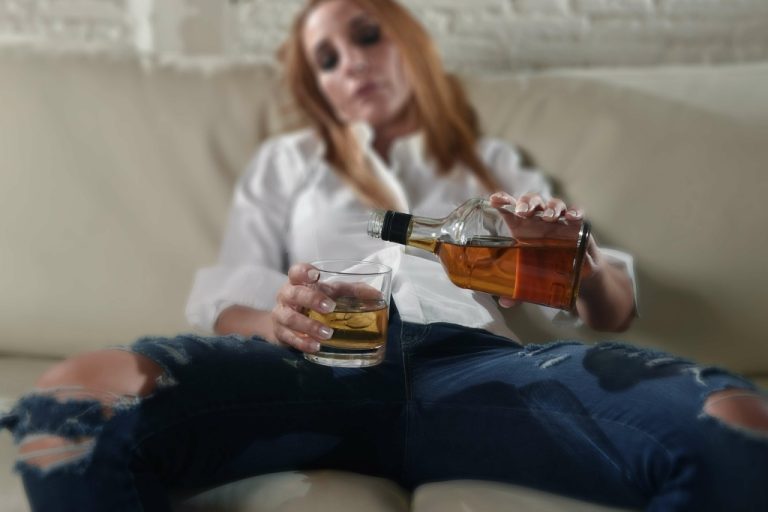In one study, two-thirds of the adults relapsed in social situations in which they experienced urges and temptations to drink or use. One third experienced relapses when they were experiencing negative emotions and urges to drink/use. By contrast, most adolescents relapsed in social settings when they were trying to enhance a positive emotional state. A small group of adolescents relapsed when facing interpersonal difficulties accompanied by negative emotions and social pressures to drink or use.
How does stigma affect people with SUD?
Professionals in the addiction studies field must acquire specific certifications and licenses to practice, which vary by state and the type of services they intend to offer. The addiction recovery field also heavily relies on addiction counselors tasked with the direct treatment of individuals through counseling sessions, therapy, and continuous support. These professionals are often required to have higher educational qualifications and are key to devising treatment plans https://wyomingdigest.com/top-5-advantages-of-staying-in-a-sober-living-house/ attuned to the individual needs of their clients. By choosing a career in this vital area, professionals dedicate themselves to making a tangible difference in the lives of individuals battling addiction and the broader societal efforts to manage and mitigate substance use disorders. A person with an addiction uses a substance, or engages in a behavior, for which the rewarding effects provide a compelling incentive to repeat the activity, despite detrimental consequences.
What is a chemical dependency treatment facility?
Repeated behavior (drugs/alcohol/sex/gambling/shopping/work/food) that interferes with normal, healthy life activities. Because addiction can affect so many aspects of a person’s life, treatment should address the needs of the whole person to be successful. Counselors may select from a menu of services that meet the specific medical, mental, social, occupational, family, and legal needs of their patients to help in their recovery.
Emotional and Psychological Support
People can learn to resist or outsmart the cravings until they become manageable. There are strategies of distraction and action people can learn to keep them from interrupting recovery. Another is to carefully plan days so that they are filled with healthy, absorbing activities that give little time for rumination to run wild. Exercise, listening to music, getting sufficient rest—all can have a role in taking the focus off cravings. For many of those who are addicted, enduring even that action is unimaginable.
Substance Use Disorder
This role provides empathy, support, and practical guidance to help individuals navigate the complexities of addiction and recovery. The scope of practice for such roles is expanding, as they are increasingly recognized for their value in enhancing traditional treatment models with peer-supported, evidence-based practices. Moreover, approaches like SMART Recovery exemplify the trend toward using evidence-based practices in addiction treatment. SMART Recovery focuses on self-empowerment and teaches self-reliance in managing addictive behaviors. It’s part of a broader push to implement scientifically validated strategies that enhance the efficacy of recovery programs.
What is individualized treatment?
They apply the programme of recovery to their lives and show others how to do this. Program that uses the same Twelve Steps as AA, but applies them to codependent and enabling behaviors. Al-Anon [2] members learn to reclaim their lives by focusing on themselves, building on their strengths, and asking for and accepting help such as recovery coaching. It creates strong cravings to drink and continue with one’s drinking routine, despite the problems it is causing in one’s life. An alcoholic may lose their job and custody of their children but still continue to drink. In addition, certifications such as the National Certified Addiction Counselor (NCAC) or the Master Addiction Counselor (MAC) require a combination of formal education, supervised work experiences, and passing professional exams.
- It creates strong cravings to drink and continue with one’s drinking routine, despite the problems it is causing in one’s life.
- A derisory term describing a member of a 12-step program who makes romantic advances toward new, or newer, members of those organizations, who typically have less than one year of recovery.
- A sponsor also provides recovery coaching as well as emotional and spiritual support to a recovering drug addict.
- Detox is an essential first step on the path to recovery from addiction.
- Neuroscientist Adi Jaffe, Ph.D., who himself recovered from addiction, outlines five steps.
Greenhouse Treatment Center is a licensed chemical dependency treatment facility in the state of Texas. Prescription drugs are drugs that are regulated by the government and require a physician prescription to obtain. Used to treat pain, reduce fever, reduce the risk of blood clots that has anti-swelling(inflammatory) qualities. It is Top 5 Advantages of Staying in a Sober Living House an anti-inflammatory, nonsteroidal, analgesic, non-narcotic medication (NSAID). 7 in 10 adults who ever had a substance use problem considered themselves to be recovering or in recovery. At any moment, someone’s aggravating behavior or our own bad luck can set us off on an emotional spiral that threatens to derail our entire day.
Medications for opioid use disorder
Addiction develops over time, in response to repeated substance use, as the action of drugs changes the way the brain responds to rewards and disables the ability to control desire for the drug. Recovery from addiction is not only possible, it is the rule, rather than the exception. S. National Survey on Drug Use and Health, more than 75 percent of people addicted to alcohol or drugs recover—their condition improves and substance use no longer dominates their life.

Certain thoughts, feelings, and events may trigger cravings and urges for drugs and alcohol, leading up to a relapse [4]. The act of using drugs or drinking alcohol after a person has abstained from drinking or drugging for a period of time. Relapse also signifies a return to certain behaviors such as binge, purge activities or other behaviors such as gambling.